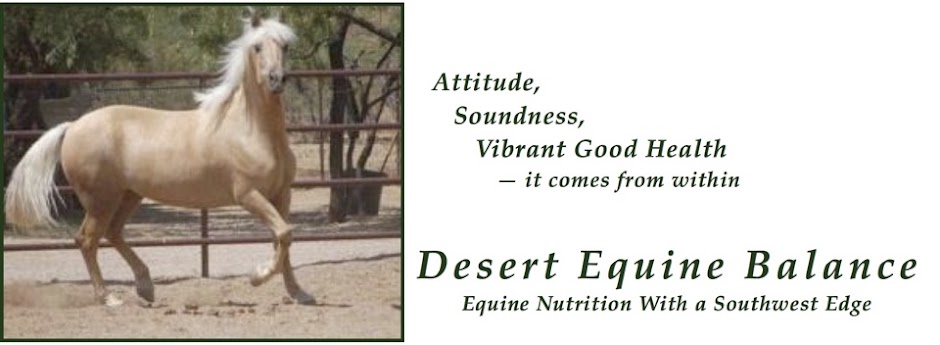 Holistic Veterinary: Thyroid Misconceptions in Horses
Holistic Veterinary: Thyroid Misconceptions in HorsesWritten by Eleanor Kellon, VMD
Most of the body's iodine is concentrated in the thyroid gland and deficiencies clearly influence thyroid function. Excesses are also harmful. Selenium is required by the deiodinase enzymes and by the glutathione antioxidant that protects those enzymes. Both iodine and selenium are deficient at baseline in many areas of the country.
Learn more....
How do you know if your horse is getting enough of these important minerals?
The average horse requires from 2.5 to 3.8 mg of iodine per day for maintenance, and from 3.3 to 5 mg per day when in work. Iodized salt provides an average of 1.7 mg iodine per ounce, so the average horse would need to take in one and a half to three ounces of iodized salt per day to obtain the correct amount of iodine. Many supplements provide less than 1 mg iodine per serving while some provide up to 5 mg. If using kelp or seaweed to provide iodine, make certain the iodine level is guaranteed with both a minimum and maximum - not just a minimum.
While we generally rely on USGS maps to see if a geographical area has high or low levels of selenium, this mineral can occur in pockets or accumulate in low lying drainage area. Modern farming practices may have also altered the "native" mineral composition of the soil. Your hay grower may know, but your best bet is to include a selenium level when testing your hay. If you suspect selenium related issues (continued low thyroid levels despite adequate iodine, tying up or weakness or short striding behind) ask your veterinarian to run a whole blood selenium level on your horse, usually done together with a vitamin E level.
These "micro" minerals, despite the small amounts required, can have a major influence on your horse's health and well being.
Best regards,
Patti in snow covered but sunny Vail AZ
Links:
Holistic Horse - http://www.holistichorse.com
Thyroid Misconceptions in Horses - http://holistichorse.com/horse-health/holistic-veterinary/2151-holistic-veterinary-thyroid-misconceptions-in-horses
Dr. Kellon - http://www.drkellon.com
USGS maps - http://tin.er.usgs.gov/geochem/doc/averages/countydata.htm
Equi-Analytical Forage Lab - http://www.equi-analytical.com/Services/Analytical%20services.htm
Cornell Veterinary Diagnostic Lab - http://ahdc.vet.cornell.edu/sects/
